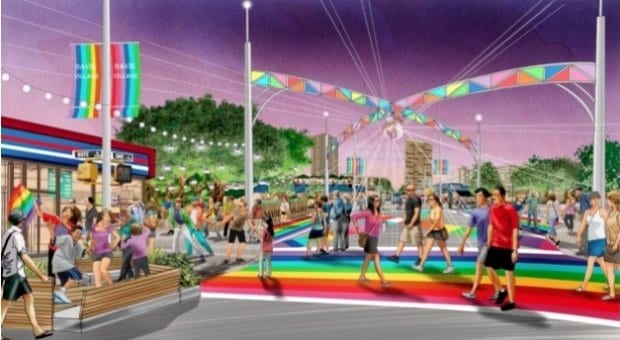What a difference a quarter century can make.
The City of Vancouver’s last West End plan, completed in 1986 for its commercial areas and 1987 for its residential areas, never even mentioned the word gay.
The plan covered what kinds of commercial developments to encourage and how to ensure they’re compatible with the area’s residential needs. It talked about the area’s demographics, its seniors and families with children, and even spared some concern for its low-income households.
But it remained shockingly silent on one of the area’s most important demographics: its sizeable gay community.
Of course, the last plan was drafted in the late 1980s, when politicians and city planners would have been deeply reluctant to acknowledge, let alone address, gay issues, and the community itself was only just beginning to find its political voice.
The new West End draft plan, in contrast, contains so much recognition of the gay community’s presence and its historical and cultural connection to the Davie Village that it’s almost embarrassing.
Just six lines into its contextual introduction — after a brief description of the area’s physical parameters — the plan acknowledges the Davie Village as “traditionally a hub for the city’s lesbian, gay, bisexual, transgender and queer (LGBTQ) community.”
And it doesn’t stop there. Page 7 says the West End, and particularly the Davie Village, “has long been recognized as home to Western Canada’s largest LGBTQ community. This makes for a unique community identity, vitality, and vibrant social diversity.”
Page 16 proudly displays photos of the new plaza and rainbow crosswalks, and page 32 offers a rainbow-rific dreamscape of Davie and Bute streets.
Page 30 again identifies the Village as a “hub for the LGBTQ community” and describes it as a “vibrant district catering to locals and visitors alike during the day and late into the evenings.”
The plan promises to “strengthen and enhance” the Village as an area for local business and nightlife. “Its distinct flavour as the gay village will be recognized and celebrated through the use of colour and lighting, and enhanced as a space for local celebration, events and gathering. Community events and programming will be encouraged and supported.”
We’re even mentioned in the plan’s heritage section, which describes the gay community’s roots in the West End “going back as much as 80 years.”
The contrast between this plan and the last is nothing short of incredible.
What a difference time and, especially, a strong political voice and a seat at the decision-making (and advisory committee) table can make. Having allies in government and a supportive city staff with the political will and public backing to assist gay people helps, too.
Strengthening and enhancing the Davie Village as a gay hub and entertainment district is cited in at least two policy sections of the plan, as is the city’s intention to help BC’s queer resource centre find a new home. Qmunity’s current facility is “small, aging and lacks wheelchair accessible options,” the plan says.
“The West End would benefit from a purpose-built facility for Qmunity,” the plan concludes, promising to explore opportunities to help create a new queer community centre in the Davie Village as part of its public benefits strategy. Unbelievable.
City planners have already followed up on that promise with a recommendation to city council to approve Jim Pattison’s latest Burrard Street rezoning application, contingent on, among other community amenity gifts, a $7 million contribution to Qmunity’s new home.
Council is scheduled to begin considering the Pattison proposal on Nov 19, as Xtra goes to press. The West End draft plan goes to council for a vote the next day. So far, it seems likely to pass. Fingers crossed.
Robin Perelle is the managing editor of Xtra Vancouver.

 Why you can trust Xtra
Why you can trust Xtra


